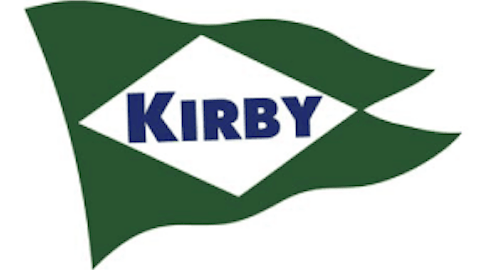Tim Howard: Hi, guys. This is Tim on for Selman. Thanks for taking the time. Previously you guys had highlighted some potential projects in and around Beaumont. Just wondering if you could expand on what kind of projects you guys are seeing and potentially the scale of those projects?
Bob Bondurant: Yeah. So the scale of those projects to us would be very similar to what you saw on our high purity deal. So we are not — we are talking a couple of tens of millions of dollars. That would be our contribution to the project that we had discussed previously. Now, those projects have slowed down, in one case the project has been deferred, because of the inability to get the carbon capture managed on their side. So I’d say there’s — we are still talking to people and there’s more to come on that, but nothing else to report at this time.
Tim Howard: Got it. Thanks. And you guys had also mentioned some one-time SG&A and OpEx costs within a couple of your segments. Is there any way for you guys to quantify how much that impact was for the quarter, and obviously, since they were one-time, we should see a step up in 4Q cash flow?
Sharon Taylor: So I want to clarify first, we are talking about the one-time expenses in the Marine Group.
Tim Howard: Correct. And then I think there was also some, I thought you guys had mentioned some expenses within terminalling and storage?
Sharon Taylor: So we have what some of those are related to in both terminalling and in the Marine Group is some phantom units that we gave out to management in July. So a couple of things happened. In June, we already had two tranches of those on the books and the unit price had come down to a point where we made an adjustment in June and then we issued another tranche to our employees in July and so that tranche they came on in the third quarter and so when you look at those SG&A costs, you had a reduction in the second quarter and an additional tranche in the third quarter. So that’s some of those differences there.
Tim Howard: Got it. Makes sense. And then the last one for me is just wondering if you could give an update on your guys’ business down in Florida, in Tampa?
Bob Bondurant: Yeah. The trucking business in Tampa has continued to be strong. We are getting the types of returns in Tampa that we see throughout our trucking business and that’s been a good growth area for us. And we would anticipate for the rest of this winter and next spring and early next summer that the phosphate business do quite well and there would be a lot of need for us moving products around there.
Tim Howard: Understood. That’s all I had. Thank you guys for the time.
Bob Bondurant: Yeah.
Sharon Taylor: Thank you.
Operator: And there are no further questions at this time. I would like to turn the conference over to Bob Bondurant for closing remarks.
Bob Bondurant: Thank you, Audra. We are pleased with our third quarter results, beating guidance by a little over $1 million as our diversified refinery services model continues to return stable cash flows, allowing us to continue to strengthen the balance sheet and get closer to our leverage goal of below 3.75 times. During the call, we discussed the delayed startup of the ELSA plant. Even with the delay, we remain positive about the strategic alliance with Samsung, C&T America and Dongjin USA, Inc., expanding our existing asset base to fuel growth and grow both revenue and cash flows with low capital requirements. Finally, I want to say that here at Martin, we are saddened by the recent attacks on Israel, the ongoing conflict and unimaginable human suffering. Our hearts go out to every person and family impacted by these horrific events. We pray for resolution to the conflict soon. That concludes our call. Thanks for joining us shortly today.
Operator: And that does conclude today’s conference call. Thank you for your participation. You may now disconnect.
Follow Martin Midstream Partners L.p. (NASDAQ:MMLP)
Follow Martin Midstream Partners L.p. (NASDAQ:MMLP)
Receive real-time insider trading and news alerts



